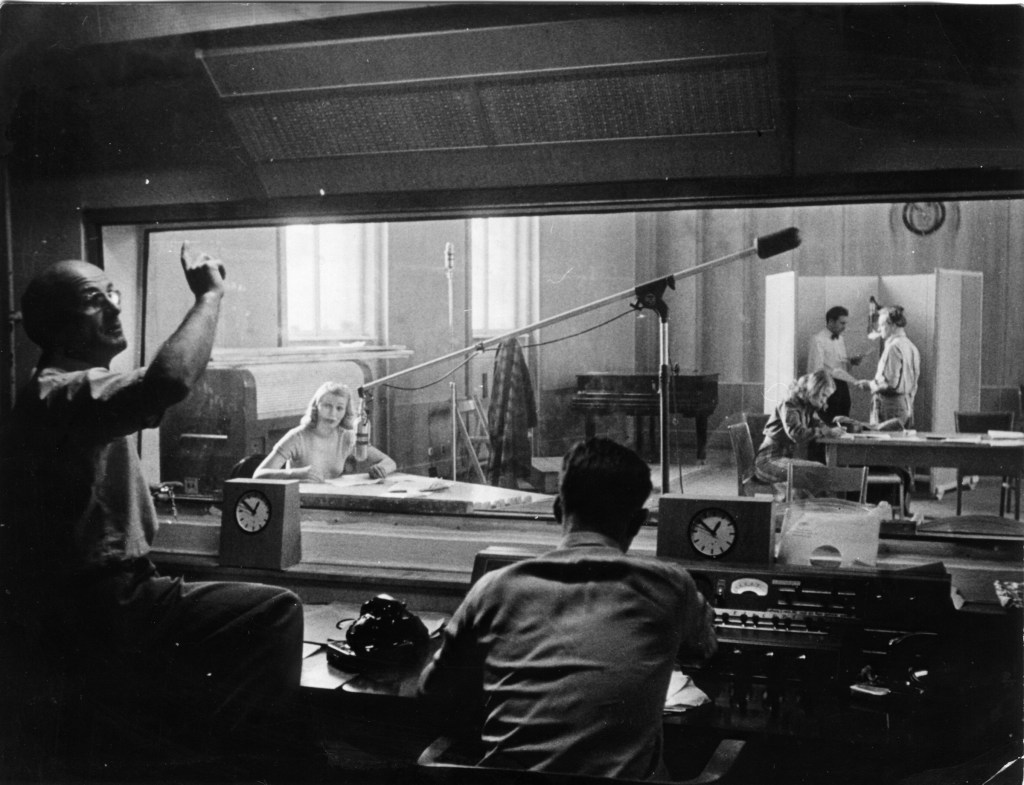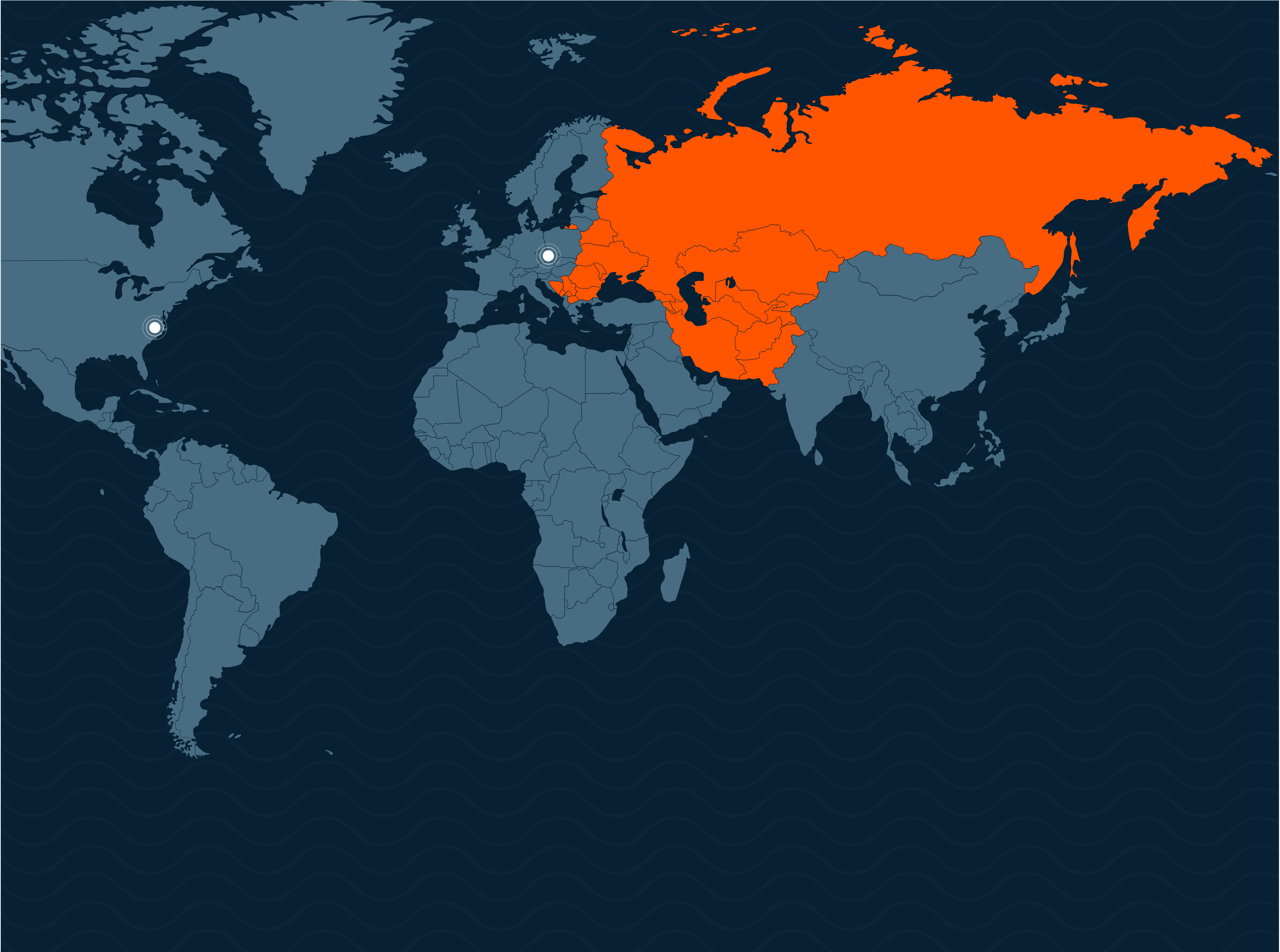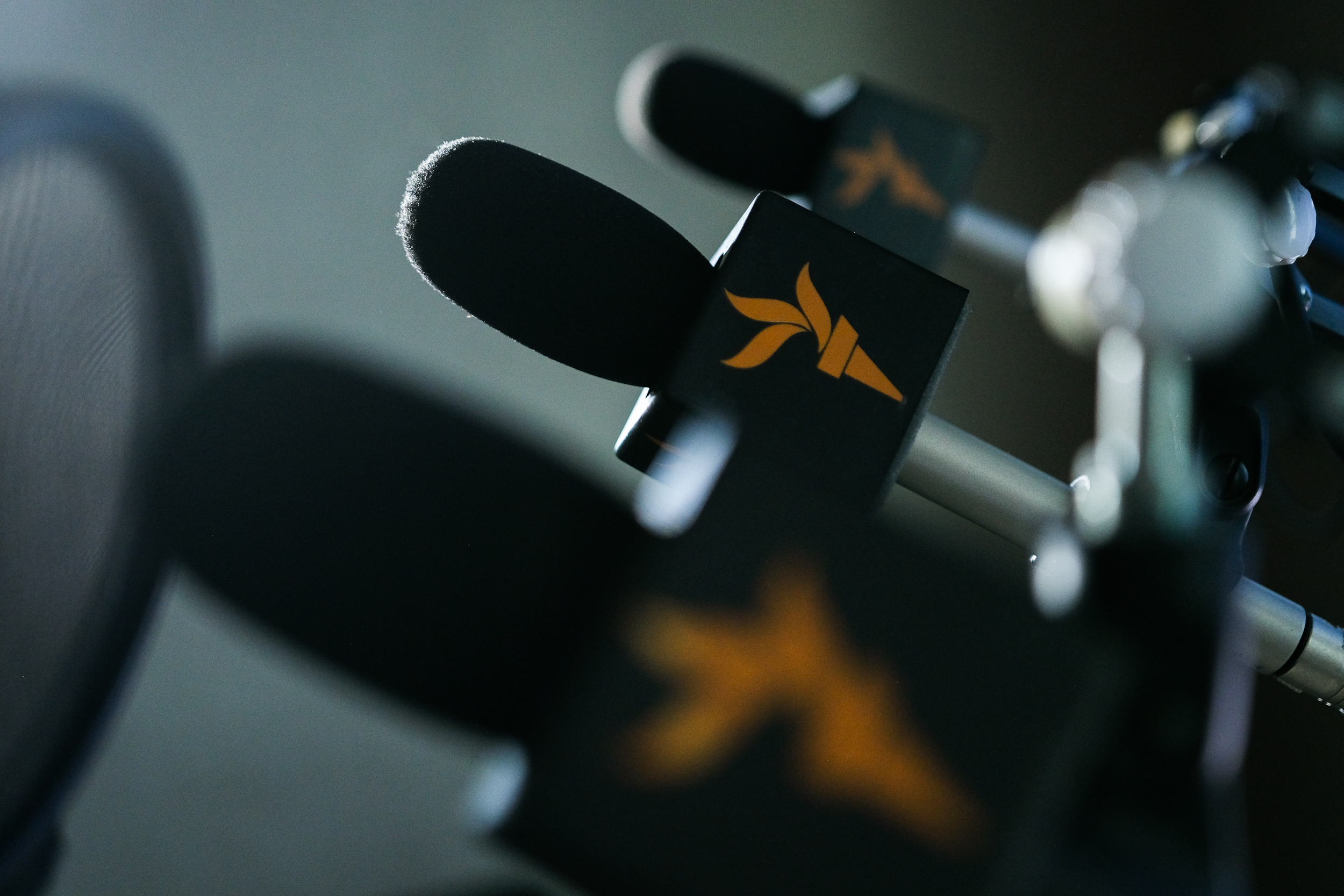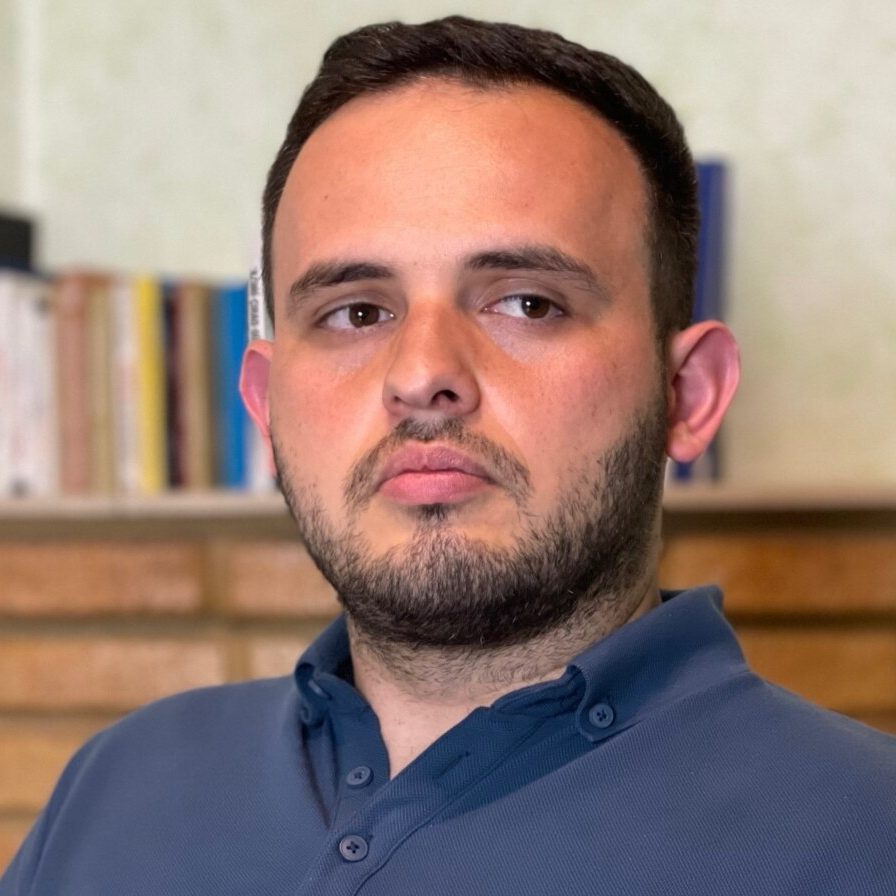Imprisoned Journalists
RFE/RL advocates on behalf of its journalists who have been imprisoned because of their work. They must be released immediately to their families. Journalism is not a crime.
RFE/RL’s mission is to promote democratic values by providing accurate, uncensored news, and open debate in countries where a free press is threatened and disinformation is pervasive. RFE/RL reports the facts, undaunted by pressure.

RFE/RL provides independent news in places where a free press is banned by the government or not yet fully established.
Weekly audience
(FY2024)
Visits to RFE/RL websites
(January–December 2024)
Facebook video views
(January–December 2024)
YouTube video views
(January–December 2024)

RFE/RL reports in 26 languages to 22 countries, reaching nearly 50 million people every week. With over 1,300 staff, RFE/RL is one of the most comprehensive news operations in the world.
We report in 22 countries and 26 languages across Europe, Eurasia, Central Asia, and the Near East.
RFE/RL was based in Munich from 1950–1995, then moved to Prague at President Vaclav Havel’s invitation in 1995.
Closed media environments force many of our journalists to report remotely from Prague, Riga, Vilnius, and other locations.
RFE/RL breaks through state censorship and restrictions on media to provide audiences a platform for informed discussion and debate.

In April 2025, RFE/RL’s Afghan Service, Radio Azadi, relaunched “Education Hour,” a program designed to help girls in Afghanistan keep up with their studies as the Taliban bans them from formal education.
The Persian-language service, Radio Farda, experienced dramatic audience growth on social media following Iran’s historic demonstrations sparked by the death of Mahsa Amini.
Since the start of Russia’s full-scale invasion of Ukraine, Ukrainian– and Russian-language audiences have surged to record numbers.
Advocacy priorities
RFE/RL journalists work in challenging media environments, often at great personal cost. We support them and a free press.
RFE/RL faces extreme government pressure, harassment, and sophisticated censorship across its broadcast markets.
RFE/RL advocates on behalf of its journalists who have been imprisoned because of their work. They must be released immediately to their families. Journalism is not a crime.

Farid Mehralizada is an economist and journalist for RFE/RL’s Azerbaijani Service who has been unjustly detained in Baku since May 30, 2024.

Nika Novak is a journalist for Radio Free Europe/Radio Liberty (RFE/RL)’s Russian Service, known as Radio Svoboda, who has been unjustly detained in Russia since December 25, 2023.
RFE/RL provides uncensored, trusted local news, often acting as a public broadcaster. RFE/RL’s editorial decisions are separated from U.S. political interference by law so that our audience’s needs always drive our reporting.
A free press allows people to make informed choices about their future. By contributing to media freedom in autocratic societies and emerging democracies, RFE/RL is supporting long-term development and stability in the region we cover. RFE/RL’s budget is less than one percent of the overall federal budget and is spent fostering an open media climate as a core democratic value. This is vital to U.S. national security and foreign policy objectives to advance universal human rights.
In many countries RFE/RL journalists knowingly work at tremendous risk. They are often harassed, threatened, physically assaulted, or detained in connection with their professional activities. In Ukraine, our reporters are covering a full-scale war from the frontlines. Nothing is more important than the safety of our journalists. We work closely with the U.S. and European governments, embassies, and many nongovernmental organizations to develop support networks and find ways to protect our journalists when they’re under threat.
RFE/RL is funded by the U.S. Congress through a grant from the United States Agency for Global Media (USAGM) and has had no connection to the CIA for over fifty years.
In a world of disinformation and polarization, RFE/RL’s mission is critical to allowing people to make informed decisions about their futures. Russia’s full-scale invasion of Ukraine exemplifies why our mission is so important.
Despite our Cold War history, today’s RFE/RL is digital-first. We reach our audiences where they are. In some countries, like Afghanistan, radio remains an important tool. In others, we have made concerted investments in digital news formats to best provide our audiences with trusted reporting. Because we work in closed media environments, in partnership with the Open Technology Fund, we are employing state-of-the-art censorship circumvention technologies to reach our audiences.
An essential guarantee of RFE/RL’s journalistic credibility is the “firewall” enshrined in the enabling legislation of the United States Agency for Global Media (USAGM), the U.S. International Broadcasting Act. The firewall prohibits interference by U.S. government officials, including USAGM’s Chief Executive Officer, in the objective, independent reporting of news by RFE/RL, thereby safeguarding the ability of our journalists to develop content that reflects the highest professional standards of journalism. The firewall is critical to ensure that USAGM journalists and editors can make the final decisions on what stories to cover, and how they are covered. The results of this policy are clear — our audiences trust us.
RFE/RL is funded by the U.S. Congress through the United States Agency for Global Media (USAGM). USAGM is an independent federal government agency that oversees all U.S. global broadcasting. Under IRS rules, RFE/RL is a private, nonprofit Sec. 501(c)3 corporation. Chartered in Delaware, it receives federal grants as a private grantee. RFE/RL maintains a corporate office in Washington, D.C. RFE/RL is managed by President Stephen Capus and a Board of Directors chaired by Lisa Curtis. While RFE/RL is funded by the U.S. Congress, our editorial independence is protected by U.S. law. Further, RFE/RL staff are not U.S. federal government employees.
RFE/RL operates as a surrogate local news broadcaster in closed, polarized, or emerging media markets. RFE/RL provides uncensored, independent reporting on digital platforms, radio, and television, in local languages for in-country audiences.
We report in 26 languages and engage with audiences in 22 countries including in Europe, Eurasia, Central Asia, and the Near East.
Join us in advocating for press freedom and supporting RFE/RL journalists who have been unjustly imprisoned.